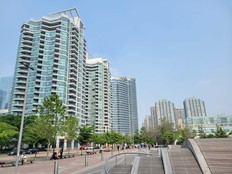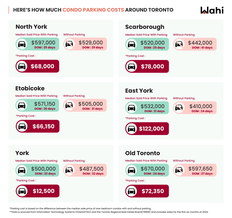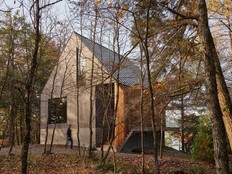Housing crisis could get worse
New GTA housing study from BILD says region is on the doorstep of compounding housing crisis; blames slow approval process and excessive development charges Three consecutive interest rate cuts of a quarter-percentage point each, an easing of mortgage stress test rules, a 30-year amortization mortgage period, all should help as the new home and condo market struggles into the fall market, at least one would think. But that should not deflect from the fact the current housing market continues to be in a crisis because of fundamental and structural problems related to slow approval process and excessive development charges, warn builders and developers gathered at a media event organized by the Building Industry and Land Development Association (BILD) held at The Stock Restaurant in Toronto on Tuesday, Sept. 24. “The cost of building is too high and it’s taking too long,” says David Wilkes, president and CEO of BILD. “The GTA housing market faces structural challenges that have driven up construction costs, including unattainably high government fees and taxes — which are among the highest in Canada.” Wilkes points to the latest Municipal Benchmarking Study from the BILD and undertaken by the Altus Group revealing that the number of new homes built in the Greater Toronto Area (GTA) is lagging significantly behind population growth. “The study shows that the gap between housing stock and population growth in the GTA is the widest it has been in over 50 years,” said Wilkes. “This a bright red warning light on dashboard for all levels of governments. Without bold steps, the housing crisis in the GTA is going to get far worse in the years ahead.” Builders and developers at the event seemed to agree including one prediction that if change doesn’t occur, the housing market could hit rock bottom in 2027. “If it takes three to five yeas to build product, you can see where it’s going,” says Noorez Lalani, president, MOD Developments. Barry Stern, vice-president development, the Muzzo Group, describes new condo construction as at a standstill and the slow approval process isn’t helping. “It used to be we get five reports per application, now we get from 20 to 40 reports for each one,” he says. The feeling in the room that the condo market has not really recovered since COVID-19 days, sales volumes are way down from pre-pandemic levels, and lacking in Toronto is “a culture that says yes to new building projects,” says Peter Cortellucci, vice-president of the Cortel Group. This is the third Municipal Benchmarking Study since 2020, and the 2024 study identifies that, on average, municipal approvals for new housing in the GTA take 20 months. Findings also show that each month of delay adds $2,673 to $5,576 in added cost per unit per month. Based on average approval time frames, this adds between $43,000 and $90,000 to the cost of a new home. The study also quantifies the fees and charges that municipalities add to the cost of a new home. In the GTA, fees, taxes and charges from all levels of government account for almost 25 per cent of the cost of a new home for the new homebuyer. Municipal fees and charges are a significant portion of that. According to the study, municipal fees rose by an average of $42,000 per unit on low-rise developments and $32,000 on high-rise units since 2022. On average, municipal fees now add $122,387 to the cost of a condominium and $164,920 to the cost of a single-family home in the GTA.” “Without bold and immediate action, the region’s housing crisis will be exacerbated, leading to fewer housing starts, reduced jobs, and compounded affordability issues in the years ahead.” says Wilkes. Previous versions of BILD’s benchmarking report were published in 2022 and 2020. The full 2024 report is available on bildgta.ca.












































